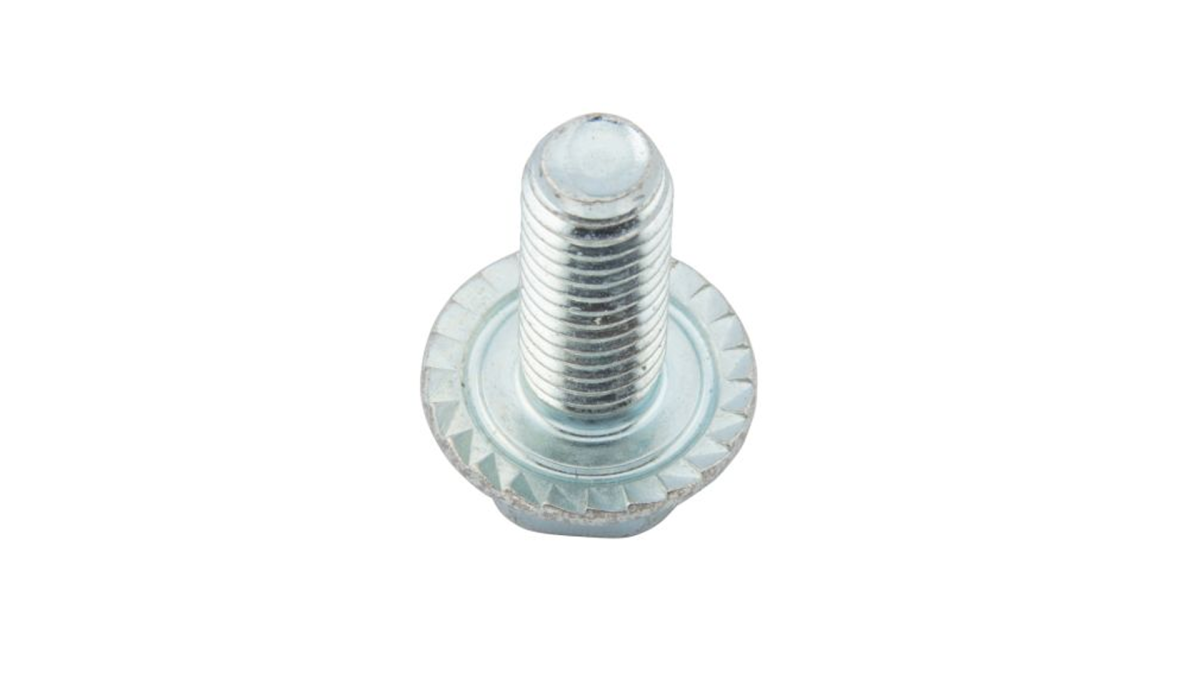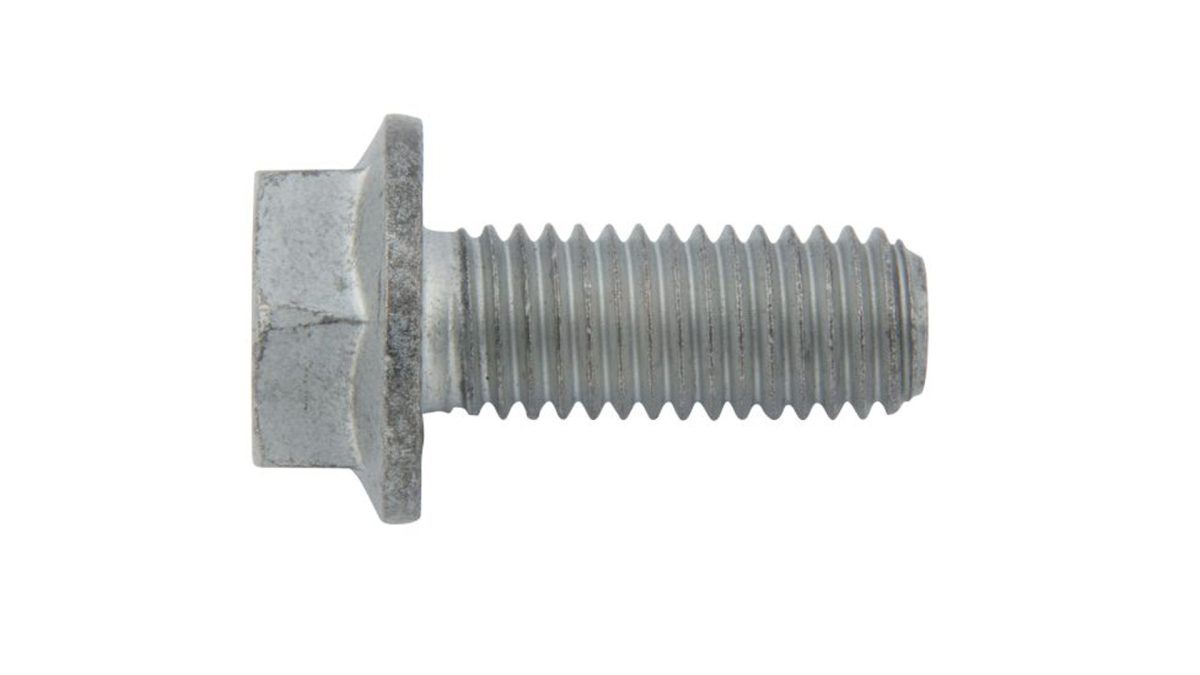Locks to prevent unscrewing
As a result of dynamic stresses, it is possible for screws to unscrew themselves despite a sufficient pretensioning force. The cause of partial unscrewing is that the frictional connection between the thread flanks and in the head or nut contact surface can be reduced considerably in the event of axial vibration stress. If stresses occur perpendicularly to the screw axis, the smallest relative movements (slippage) can occur between the stressed parts, which can result in the screws being completely unscrewed when a full pretensioning force is applied.
Fasteners designed to prevent unscrewing effectively prevent independent unscrewing under dynamic stresses. Apart from small unavoidable settling, the pretensioning force in the connection is preserved.
Locking mechanism on the contact surface
When locking to the contact surface, locking teeth, which have steep edges that burrow into the surface material in the unscrewing direction of the screw, or symmetrical locking ribs, which effectively maintain the pretensioning force on hard and soft materials, are used.
Locking measures
Locks to prevent unscrewing ensure that the screw connection continues to function correctly, i.e. with a sufficiently large pretensioning force and residual clamping force, in the event that transverse movements occur as a result of dynamic stresses perpendicular to the screw axis.
Suitable measures include:
- Avoiding displaced shear force displacements
• By means of positive locking in the joint (pins, tooth systems)
• By means of fitting bolts
• By means of self-tapping screws without thread play - High pretensioning forces
• By using high-strength screws and controlled tightening procedures - Elastic screws
• By means of a large clamping length (reduced shaft bolts) - Suitable fasteners
• By means of locking elements, e.g wedge lock washers
You might find this interesting:
- More technical knowledge
- Download centre with our
 product and system brochures
product and system brochures
Contact:
The Würth Industrie Service GmbH & Co. KG collects and processes the personal data provided in the form in order to process the requested request for you. Please note the mandatory fields in the forms. The legal basis for this processing, the absolutely necessary data, is Art. 6 para. 1 lit. b DSGVO, implementation of a pre-contractual measure. The processing of data voluntarily provided by you is carried out on the basis of Art. 6 para. 1 lit. f DSGVO. Thereafter, processing is permissible which is necessary to safeguard our legitimate interests. Our legitimate interest is to have contact with you, our customers, to improve our consulting quality and to be able to contact you more easily in case of possible queries. The data collected will only be stored by us for as long as is necessary to process your enquiry and to contact you. They are then deleted.
Supplementary data protection information, in particular regarding your rights to information, correction, deletion, restriction of processing, objection and complaint, can be found in our data protection declaration.



